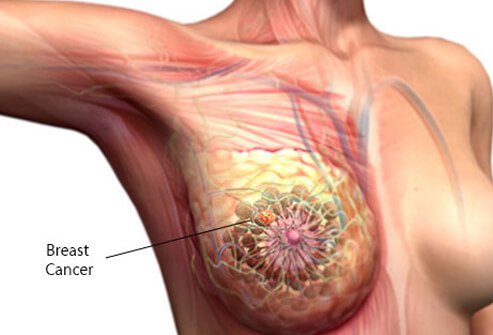October is dedicated to advocacy and creating awareness on Breast Cancer, the most common cancer in women globally (including Nigeria). Breast cancer also occurs in men, but it is 100 times more common in women. However, because most people are not aware that breast cancer can occur in men, the disease tends to be picked up much later and is often more fatal in men than in women.

According to the International Agency for Research on Cancer (IARC), over 18 million people develop cancer yearly with 9.6 million deaths. Unfortunately, 70% of cancer deaths occur in developing countries like Nigeria, due to late detection. Latest World Health Organisation (WHO) data shows that, globally, there were over two million new cases of breast cancer and over 600,000 deaths from the disease, in 2018. Every day, Nigeria records 32 deaths from breast cancer.
As we mark the October Breast Cancer Awareness Month, it is necessary to look at an aspect of the disease of which most people are unaware – the relationship between breast cancer and oral hygiene.
The better-known risk factors for breast cancer include: female gender, increasing age, family history of breast cancer, early onset of menses, late menopause, ethnicity and alcohol/tobacco use.
However, scientific research has recently demonstrated a link between breast cancer and oral health. Women with poor oral hygiene and periodontitis (inflammation of the gum), are up to three times more likely to develop breast cancer. The risk is greater in smokers.
Poor dental hygiene and gum disease has also been linked to increased risk of other cancers (including prostate cancer, throat cancer, lung cancer, gallbladder cancer, melanoma and pancreatic cancer) and of several general health conditions (such as pneumonia, stroke, heart disease, problem pregnancy and Diabetes mellitus).
The prevention and early diagnosis of periodontitis are therefore, very important not only for the patients’ oral health, but also for their overall wellbeing.
Periodontitis is a serious bacterial infection of the gum that damages the soft tissue and destroys the bone that supports the teeth. In the early stages, it often presents as bleeding or swollen or painful gums (gingivitis) and sometimes as halitosis (bad breath). The main causes of periodontal disease are poor oral hygiene and tobacco use. The bacteria most often associated with periodontitis (Treponema denticola and Porphyromonas gingivalis) enter the bloodstream through the gum.
Later, the bacterial infections become associated with co-infection by viruses such as Epstein-Barr virus and Cytomegalovirus. These viruses act together with the bacteria to suppress the body’s immune response, leading to a proliferation of cancer cells in the body.
Fortunately, it is possible to prevent the occurrence of periodontitis which may predispose to cancer. The best way to achieve this is by following the 2-2-2-2-2-2-2 rule of dental hygiene, including:
- Brush your teeth two times a day – last thing at night and at least one other time during the day
- Brush your teeth for at least two minutes each time
- Use two tools for personal oral hygiene – a fluoride-containing toothpaste and medium textured toothbrush
- Each time you brush clean between the teeth with dental floss or an interdental brush, which ensures that bacteria is removed from all areas of the mouth.
- Go for a dental checkup at least two times a year
- During your dental checkup, have your teeth professionally cleaned (scaling and polishing or S & P)
- Your child should start brushing his own teeth and visiting the dentist from the age of 2.
Observing the following DONTS OF DENTAL CARE would further enhance your oral health:
- Don’t use a hard toothbrush – use a medium texture toothbrush for adults and a soft texture toothbrush for children
- Don’t use toothpick – use dental floss instead
- Don’t open bottles with your teeth
- Don’t wait until you have dental problems before you visit your dentist. Visit your dentist every six month for a dental check-up and S&P. Also, consult your dentist if you have toothache, bad breath, cracked teeth, holes in your teeth and between gums and teeth, or if you notice any strange thing in your mouth.
In addition to predisposing you to other cancers (such as breast cancer), poor oral hygiene also predisposes to cancers that occur primarily in the mouth and throat, with tobacco, alcohol and Human papillomavirus (HPV) infections being among the leading risk factors of oral cancer. Human Papilloma virus also causes cancer in more than 12 parts of the body, including the cervix (cervical cancer).
Moreover, there are over 120 medical conditions, which can be detected in the early stage by dentists. Therefore, the dentist can be the first line of defense against gum disease and other systemic diseases including cancer.
By Dr Abia Nzelu (info@pinkcruise.org)
